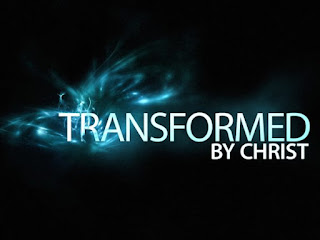Be formed before forming others
Readings: 1st: Sir 27:5–8; Ps: 91; 2nd: 1 Cor 15, 54–58; Gosp: Lk 6:39–45
Dear friends in Christ, two weeks ago, we
started reading St Luke’s account of the beatitudes - a series of teaching
comprising blessings and woes, which Jesus taught his disciples at the foot of
the mountain. The beatitudes were intended to show the disciples the way that
leads to happiness and the way that leads to misery. Gradually, as we have seen
from last week Sunday, Jesus extended this teaching to modes of conduct for the
disciples, and all of us as well.
In the gospel reading of last week, Jesus
tasked his disciples to treat their enemies with love, mercy and compassion. He
also instructed them not to judge nor condemn others. Then, in the gospel of
today, Jesus taught his disciples more reasons why they should love their
enemies, treat them with patience, mercy, and compassion, and why they are not
to judge or condemn other people. Jesus did this by using three images drawn
from everyday life.
The first image came with this rhetorical
double-barreled question: can a blind person guide a blind person? Will not
both fall into a pit? The answer to the first question is ‘No’, a blind person
cannot lead a blind person. To the second question, the answer is ‘Yes’,
because if a blind man leads a blind man, they will fall into a pit.
With these two rhetorical questions, Jesus was
teaching his disciples that they would not be able to successfully lead other
people out of their errors or sins, or to correct people in their mistakes
unless they have allowed themselves to be transformed by what they have learnt
from Him and what they have seen Him do. What does this tell us, dear friends?
Here, Jesus is challenging all of us as
teachers, pastors, parents, guardians, leaders and whatever influencing role we
have in the lives of others to first of all be motivated and influenced by His
teachings before we set out to guide, to correct and to teach others. Dear
friends, if we do not allow ourselves to be influenced and transformed by Jesus
and His teachings, if we are not well convinced by the type of life Jesus is
calling us to live, if we do not choose Jesus as the way in our life, then,
telling others about the Christian life would be like the blind leading the
blind.
Therefore, dear friends, we must allow our
lives to be transformed by Jesus and to live a good sacramental life before we
go out to correct and teach others. Also, we should learn about our faith:
learn what the church teaches about the sacraments and what the scripture
teaches, because we cannot be good disciples of Christ unless we have learnt
from Christ.
Secondly, Jesus used another beautiful
illustration to teach his disciple what people often do when they judge or
condemn other people. He did it with these questions: "Why do you
notice the splinter in your brothers' eye, but do not perceive the wooden beam
in your own? How can you say to your brother, "Brother, let me remove that
splinter in your eye", when you do not even notice the wooden beam in your
own eye?", (Luke 6:41-42).
With these questions, Jesus touched
the tendency inherent in all of us, that is, that tendency to notice the
mistakes and wrongs of other people while turning a blind eye to greater
mistakes in us; that tendency of exaggerating the evil in other people and
overlooking the evil in us or, perhaps, with a view of hiding our own evils.
Dear friends, have you not noticed that it is easy to find fault and mistakes
in others?
With this second image, Jesus
warned His disciples and all of us not to be the kind of disciples who are
quick to point out the faults in the lives of other people but are too slow to
recognize the sins in their own lives. In a special way, Jesus, invites us to
be reformed and transformed before we reform others. He warned us not to be
hypocrites as we set out to correct others in their mistakes. There should be
no discrepancies between what we say and what we do. Thus, before talking about
the sins of others, we should first of all look at ourselves in the mirror to
know how we truly are.
Furthermore, Jesus used another
beautiful image to teach His disciples why it is good to be transformed from
within before setting out to transform others. The reason is that it is
impossible for one to transmit what he doesn’t have, but it is very easy for
good things to flow out of good people. He said’ "A good tree does not
bear rotten fruit, nor does a rotten tree bear good fruit. For every tree is
known by its own fruit… A good person out of the store of goodness in his heart
produces good, but an evil person out of a store of evil produces evil; for
from the fullness of the heart the mouth speaks."
With this last picture, Jesus teaches
us that just as a good tree bears good fruit and a bad tree bears bad fruit, so
also a good person produces good, and an evil person produces evil. In other
words, if we choose to live a life rooted in Him, the outcome would be the good
fruits of kindness, gentleness, peace, mercy, compassion, faith, hope and love
towards others. But when we choose to live outside the teachings of Christ, our
lives will never contribute to the good of others nor to the edification of the
society, because we cannot give what we do not have.







.jpg)
.jpg)